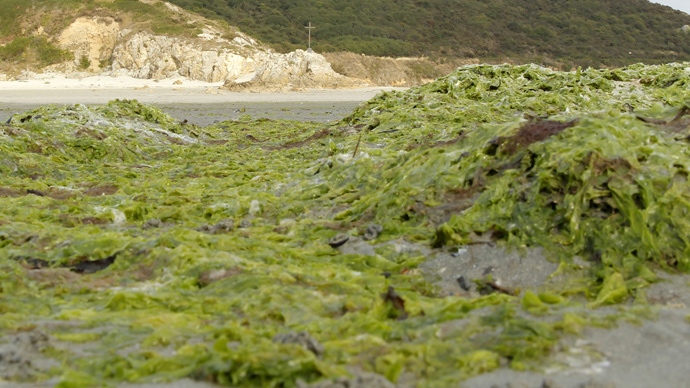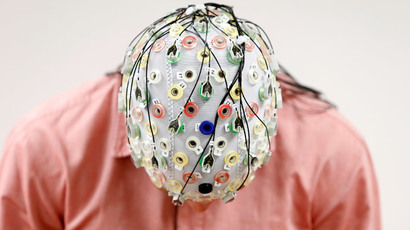Algae virus infects humans, makes ‘more stupid’ - study

A virus, previously thought to live only in algae in rivers and lakes, has been found in the throats of healthy people. The infected showed specific brain activities to be slower than of those without the virus.
The study outlining the discovery was carried out by Scientists
at the Johns Hopkins Medical School and the University of
Nebraska (UNL) and published in the Proceedings of the National
Academy of Sciences (PNAS) journal in October.
The scientists were busy with another study, when they found the
DNA of the chlorovirus Acanthocystis turfacea chlorella virus 1
(ATCV-1) in the throats of humans. According to the study, such
chloroviruses as ATCV-1 have not been previously shown to infect
humans or to be part of the human virome.
Following a series of tests, scientists found that out of the 92
healthy people 40 infected with the virus. Moreover, those
infected performed 10 percent worse in tests requiring visual
processing.
For example, people with the virus scored about nine points lower
on a test that measured how quickly they could draw a line
between sequentially numbered circles on a piece of paper and
seven points lower on tests measuring attention.
"This is a striking example showing that the 'innocuous'
microorganisms we carry can affect behavior and cognition,"
said lead investigator Robert Yolken, director of the Stanley
Neurovirology Laboratory at Johns Hopkins, according to the UNL
press-release.

"Many physiological differences between person A and person B
are encoded in the set of genes each inherits from parents, yet
some of these differences are fueled by the various
microorganisms we harbor and the way they interact with our
genes."
Animals infected with the virus exhibited similar difficulties,
scientists said. For example, mice who harbored the virus found
it more difficult to navigate a maze and spent 30 percent less
time - much less attention - examining a new object than healthy
mice.
"The similarity of our findings in mice and humans
underscores the common mechanisms that many microbes use to
affect cognitive function in both animals and people," said
co-investigator Mikhail Pletnikov, MD, PhD, director of the
Behavioral Neurobiology and Neuroimmunology Laboratory at Johns
Hopkins.
Chloroviruses, which effect certain green microalgae, are common
worldwide, said senior author of the study James Van Etten,
William Allington Distinguished Professor of Plant Pathology and
a co-director of the Nebraska Center for Virology at UNL.
"But I don't know of many examples of viruses jumping from
one kingdom to another. If this turns out to be true, this is
quite rare and a total surprise."














